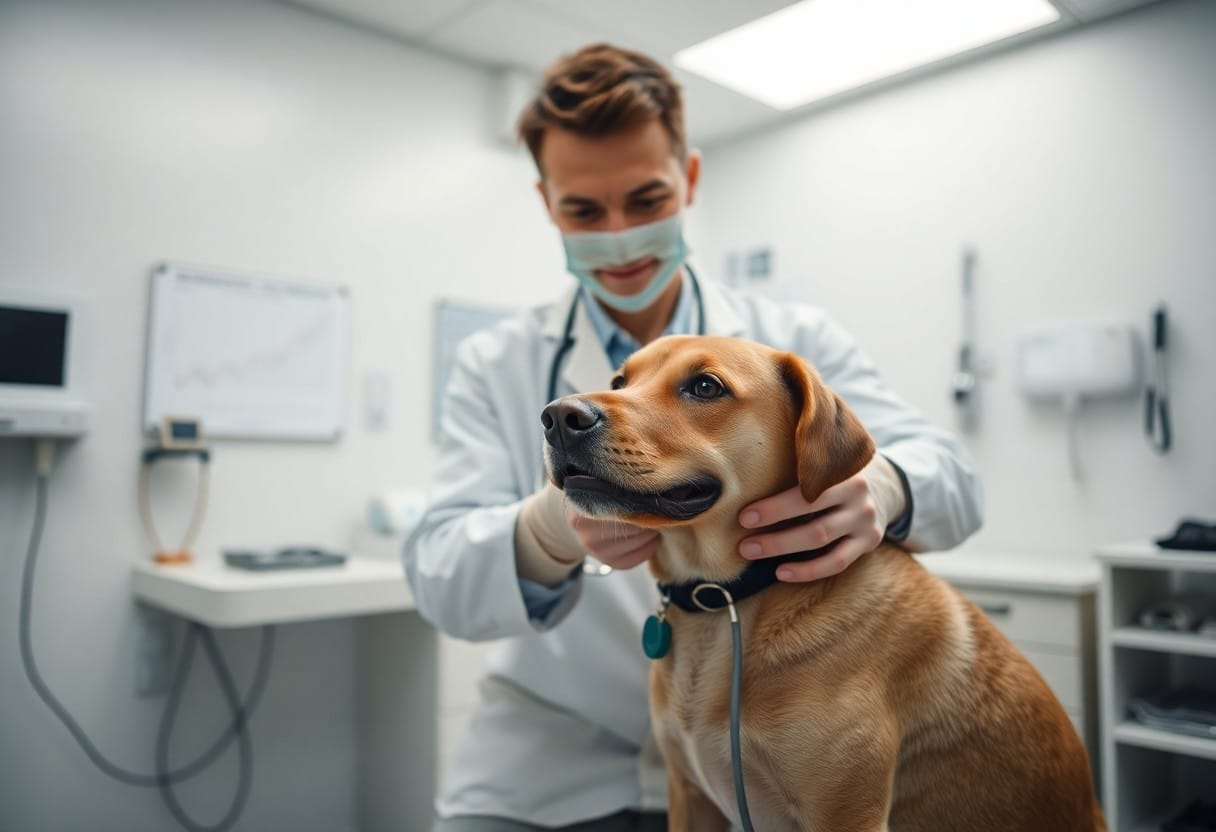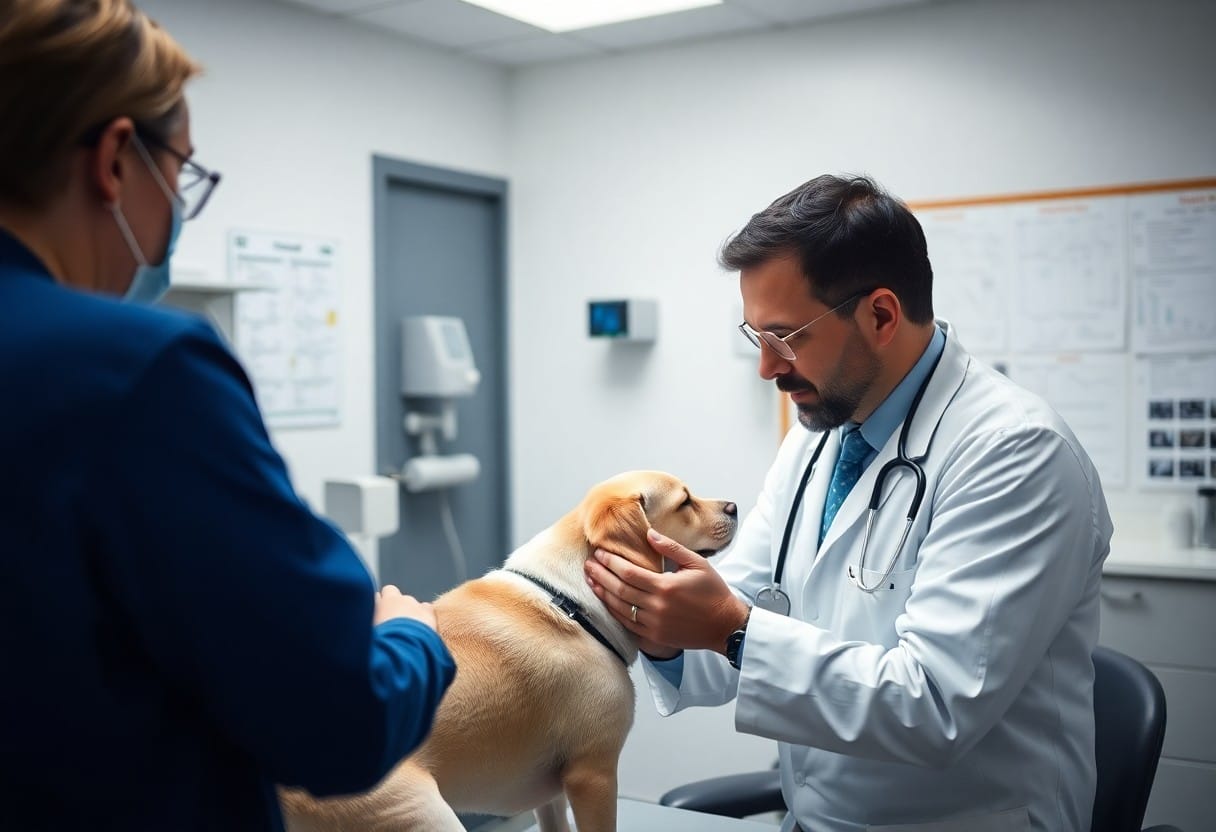
What is the best health test for dogs?
Share
You want the best for your furry friend, and understanding their health is vital for a happy life together. With numerous testing options available, you may wonder which health test is most effective in identifying potential issues. Genetic screenings, blood tests, and wellness exams each play a role in ensuring your dog's health. Choosing the best test can help you catch serious health conditions early, enabling timely interventions and treatments that can positively impact your dog's longevity and well-being.

Key Takeaways:
- Annual Wellness Exams: Regular check-ups by a veterinarian can identify health issues early and maintain overall health.
- Blood Tests: These tests can reveal underlying conditions, including organ function, infections, and nutritional deficiencies.
- Genetic Testing: Understanding breed-specific health risks through genetic testing can help tailor preventive care for your dog.

Importance of Regular Health Testing for Dogs
The health and well-being of your dog depend significantly on regular health testing. Routine check-ups can help identify any underlying issues before they escalate into more serious problems, ensuring that your furry friend leads a long and healthy life. Testing allows you to be proactive rather than reactive, supporting your dog's health journey.
Early Detection of Health Issues
Against the backdrop of unpredictable health conditions, early detection is your best ally. Regular testing can uncover problems such as infections, organ dysfunction, or hereditary diseases before they become severe, allowing for timely intervention and treatment.
Tailored Preventative Care
To ensure your dog receives optimal care, tailored preventative measures are vital. With regular testing results, you can work closely with your veterinarian to develop a personalized health plan that addresses your dog's specific needs.
Dogs exhibit behaviors and signs that may not always indicate obvious health problems. By engaging in regular health testing, you can make informed decisions about their nutrition, exercise, and overall care. This personalized approach allows you to prevent serious health issues while adapting preventive measures like vaccinations, dental care, and weight management tailored explicitly for your pet. Your attention to these details creates an environment where your dog can thrive, staying active and full of life.
Common Health Tests for Dogs
Some of the most common health tests for dogs include blood tests, urinalysis, and genetic testing. These tests are vital in monitoring your pet's overall health and identifying any potential health issues early on. Regular screenings can help you make informed decisions about your dog's care and keep them happy and healthy for years to come.
Blood Tests
Tests performed on your dog's blood can provide vital information about their organ function, immune system, and overall health. Standard blood work typically includes a complete blood count (CBC) and a serum biochemistry panel to assess various health parameters and identify any underlying conditions.
Urinalysis
Behind the scenes, urinalysis plays a significant role in understanding your dog's health. This test analyzes your dog's urine to detect any signs of infection, dehydration, or metabolic disorders that may not be evident through other tests.
But a urinalysis can also reveal important information about your dog's kidney function and urinary tract health. By examining factors like pH, specific gravity, and the presence of proteins, glucose, or crystals, veterinarians can pinpoint potential issues early. Vigilantly monitoring your dog's urinalysis results can help you spot changes that may indicate problems, allowing for timely interventions.
Genetic Testing
Above all, genetic testing can uncover predispositions to certain hereditary conditions in your dog. This proactive approach helps you understand your pet's genetic background and provides valuable insights into their potential health risks.
It is vital to explore genetic testing, as it not only aids in predicting health issues but can also guide you in making informed decisions regarding breeding. Furthermore, knowing your dog's genetic profile can help tailor preventive care and treatment options. By being aware of potential hereditary conditions, you can take proactive steps to ensure your dog leads a healthy and fulfilling life.
Breed-Specific Health Testing Recommendations
To ensure your dog's health, it's necessary to conduct breed-specific health tests. Different breeds face unique genetic predispositions, so understanding what tests are recommended for yours can lead to informed decisions.
Large Breeds
With large breeds like Great Danes or Golden Retrievers, you should prioritize tests for hip dysplasia, heart conditions, and certain cancers. These breeds are often more susceptible to joint issues and heart disease, so proactive screening can help ensure a healthy, active life for your dog.
Small Breeds
Recommendations for small breeds include testing for patellar luxation and dental diseases. Small dogs are often prone to these conditions, making early detection and management vital.
Due to their size and characteristics, small breeds can face unique health challenges, such as patellar luxation and dental disease. Regular screenings can help identify these issues early, leading to more effective treatment options and a better quality of life for your dog. Investing in health tests can not only ensure your dog's well-being but also provide peace of mind as you enjoy many happy years together.
Age Considerations for Health Testing
Despite the age of your dog, health testing plays a vital role in their overall well-being. Each life stage requires tailored assessments to ensure that your furry friend remains healthy.
Puppies
About 80% of a dog's breed-related health traits can be identified through genetic testing, making it an excellent start for puppies. By obtaining a dog DNA test early, you can pinpoint any health risks they may face as they grow, allowing you to plan preventative care accordingly.
Senior Dogs
Any dog entering their senior years should undergo comprehensive health testing to monitor existing conditions and identify potential new ones. Regular evaluations can help track age-related changes, so you can take proactive measures for your dog's health.
Testing senior dogs provides an opportunity to manage chronic health issues or prevent complications from conditions such as arthritis, kidney disease, and heart problems. Early detection allows for timely interventions, improving their quality of life significantly. Veterinary guidance on recommended tests for seniors will equip you with the necessary information to keep your beloved pet healthy and comfortable in their golden years.

Consulting with Your Veterinarian
Not all health tests are suitable for every dog, so it's vital to consult with your veterinarian. They can provide insights into your dog's specific needs based on age, breed, and health history. These discussions can help identify any predisposing health issues and recommend appropriate tests to ensure your furry friend remains healthy. Your veterinarian will also guide you in understanding the implications of the results and how they align with your dog's overall well-being.
Tailoring Tests to Individual Needs
To ensure you get the best health outcomes for your dog, it's necessary to tailor testing to their individual needs. Factors like breed predispositions, existing health conditions, and lifestyle can influence which tests are beneficial. By providing your veterinarian with detailed information about your dog's habits and history, you can co-create a personalized health plan that addresses their unique requirements.
Interpreting Test Results
Among the more complex aspects of canine health tests is interpreting the results. Understanding what the numbers and findings mean for your dog's health can require veterinary expertise. Your veterinarian will explain the results, highlighting important indicators, such as abnormal values that may signify underlying health concerns.
Needs vary significantly among dogs, and your interpretation of health tests should consider the unique context of your pet. High or abnormal values might indicate potential health issues requiring further examination, while normal results can provide peace of mind. It's necessary to ask your veterinarian about any highlights and warnings in the results, as they can guide you on the next steps for your dog's health management. Gaining a thorough understanding ensures that you are proactive about your dog's needs.
Final Words
Upon reflecting on the best health test for dogs, you should prioritize a comprehensive veterinary check-up combined with specific screenings based on your dog's breed and age. Regular blood tests, fecal examinations, and vaccinations contribute significantly to your dog's overall health. Additionally, consider genetic testing to detect heritable conditions. By staying proactive about your pet's health, you ensure not only a longer life but also an improved quality of life for your furry companion.
Frequently Asked Questions
What is the best health test for dogs?
A: The best health test for dogs often depends on the breed, age, and specific health concerns of your pet. Generally, comprehensive tests include screenings for hip dysplasia, elbow dysplasia, cardiac issues, and genetic predispositions to certain conditions. Regular wellness checks and blood tests can also help monitor overall health.
How often should dogs undergo health testing?
A: It's advisable for dogs to have a health check-up at least once a year. Puppies may need more frequent evaluations, while senior dogs, typically those over seven years old, should have health checks every six months. This frequency allows for early detection of any potential health issues.
What are some common health tests available for dogs?
A: Common health tests for dogs include blood tests to check for organ function, urine tests to assess kidney health, fecal tests for parasites, and imaging tests like X-rays or ultrasounds to evaluate internal structures. Specific genetic tests to identify hereditary conditions are also available for certain breeds.
Are there breed-specific health tests recommended for certain breeds?
A: Yes, many breeds have specific health tests recommended by veterinary organizations or breed clubs. For example, Greyhounds may need cardiac testing, while Golden Retrievers often undergo hip, elbow, and eye exams. It's beneficial to consult with a veterinarian familiar with your dog's breed to ensure appropriate testing.
How can I choose a veterinary hospital for health testing?
A: When identifying a veterinary hospital for health testing, consider factors such as accreditation, the experience and qualifications of the staff, and the availability of advanced diagnostic tools. Reading reviews from other pet owners and asking for recommendations can also guide your decision in choosing a reputable veterinary clinic.
